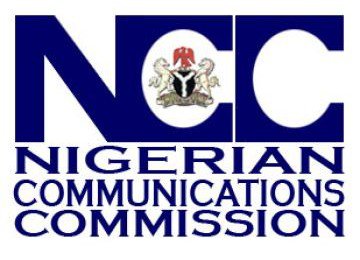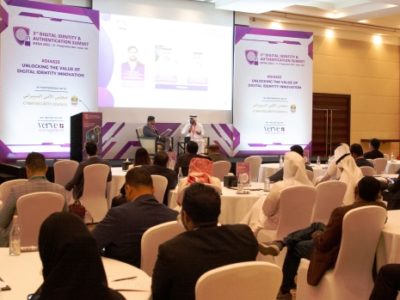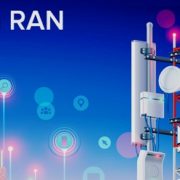Mobile Technology is playing a pivotal role in political campaigns to underscore the mass reach and mass appeal of the technology.
In several parts of the world, text-message marketing has become the most effective way for political candidates to reach a broad group of electorates. Not surprisingly in Nigeria, text-message marketing has become one of the means political parties and their candidates use to reach prospective voters.
But political parties must adhere to the law in order to use this service. Both the telecom tool and the messages sent through this tool constitute strategic national interest that could be abused. The Nigerian Communications Commission is mandated to regulate this sector and ensure such abuses do not occur.
Political Parties may use text-message marketing to pass their messages across and even use text messaging to raise funds for political campaigns. But under the law, they are compelled to first seek the permission of the regulator. In this case the Nigerian Communications Commission.
In the United States of America, political parties were first permitted in 2012 to use text messaging to raise funds for political campaigns. But parties must first seek permission from the authorities before carrying out such exercises. The Federal Election Commission (FEC) must also be notified.
In Nigeria, section 3 of the NCC’s Act compels licensees to seek approval of the Commission before embarking on any text-message marketing. The section reads in parts: ‘‘the Commission shall receive written notification from the licensees for all advertisements for goods and services within a minimum of seven days of the proposed or planned publication of an advertisement, in order to ensure such advertisements meet the minimum standards and requires.’’
Licensees who act contrary to this provision are not only undermining the law but also abusing Consumers’ Rights under NCC’s Act that relates with SPAM or unsolicited SMS.
As this is the period of political campaigns, the Commission had to publicly address this matter recently and also warn operators of the dire consequences of undermining the law as they relate to text message donations for political candidates and/or political parties.
The Executive Vice Chairman of the Commission, Dr. Eugene Juwah, recently also unequivocally affirmed the Commission’s position thus: “We are a public service agency; we are not political. If you are allowed to raise money, you must conform to the rules of NCC. We did not make these rules looking at elections. We made these rules for the interest of the development of telecommunications in Nigeria. And we will keep those rules, whether there is election or not.”
CLARIFICATION ON POLITICAL AND PARTISAN ADVERTISEMENTS
(Being text of press briefing by Director, Public Affairs, NCC, Mr. Tony Ojobo, on Tuesday, January 27, 2015.)
Introduction
The Nigerian Communications Commission (NCC) is a responsible independent regulatory Agency and its independence has never been in doubt. Its mandate is derived from the NCA 2003 to administer the communications sector. The Sector has witnessed tremendous growth and investment making it one of the fastest growing markets in the world.
We feel a need to clarify certain issues circulating in the press especially in the light of inquiries we have been receiving in the last few days. Prior to Monday 19th January, 2015, the Commission was inundated with complaints from several subscribers to the effect that they were receiving messages from Network Operators to vote for one political party or the other.
Our investigations revealed that subscribers in either checking their call balance or receiving end of call notification/alert got messages asking them to vote for one party or the other.
Mobile network operators within the industry in Nigeria have various forms of engagements with the subscribers and these include:
- Through balance enquiry and end of call notifications/alerts. For mobile network operators to use these platforms to place adverts to their teeming subscribers, the NCC Guidelines on Adverts and Promos require them to notify the Commission 7 (Seven) days prior to such advertisement.
- The VAS providers in collaboration with MNOs can through the use of Short Codes reach subscribers either to raise funds as the case may be.
However, once the Short codes have been formally allocated to a VAS Provider, such provider must use the short code solely for the purpose intended, and should ensure that its operations are in compliance with the provisions of the NCC Guidelines on the use of Short Codes in Nigeria.
Guidelines on Adverts and Promos
Section 3 of these guidelines, provides as follows “The Commission shall receive written notification from the licensees for all advertisements for goods and services within a minimum of seven (7) days of the proposed or planned publication of an advertisement, in order to ensure such advertisements meet the following minimum standards and requirements”
In effect the solicitation to the subscribers to vote one party or the other after end of call Notification or Balance Enquiry amounts to an advert for which the Network Operators are obliged to notify the Commission based on the above provision, which they did not do and this is a breach of the Guidelines.
Based on the foregoing, letter dated 19th January, 2015 was sent to the affected operators.
135 Million Subscribers
There are currently 135million active subscribers as at December 31, 2014. Not all of them are interested in political matters. The unsolicited messages violates their privacy. The networks are not like traditional media or mass media where listeners, readers and viewers have a choice. An unsolicited text message gives a subscriber no choice to receive or not. So the Commission had to intervene within the limits of its enabling laws and regulations.
Antecedents
In 2010, it should be noted that the Commission based on applications received across party lines had granted Short Codes for use by Political Parties to raise funds as well as create awareness.
































